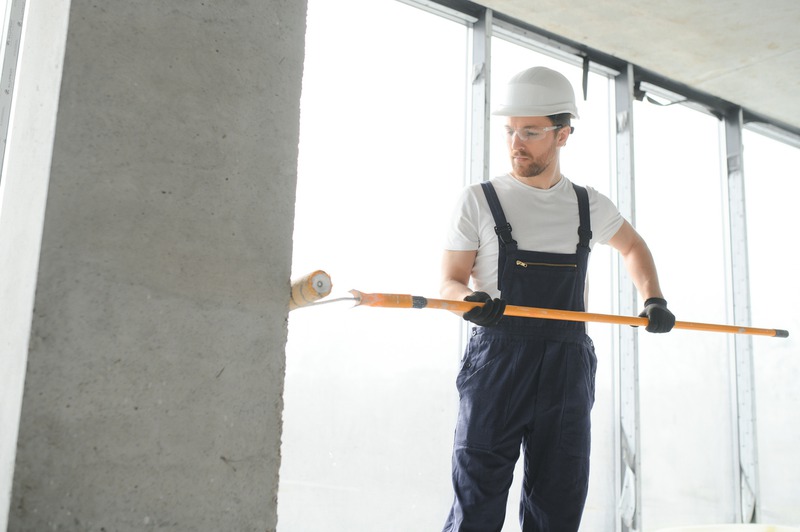Choosing the right ceiling tile material for your office space can be a process filled with aesthetic and functional considerations. Different materials offer unique advantages and can influence the atmosphere, acoustics, and overall comfort of the work environment. We’ll explore the various types of ceiling tile materials available and help you find the perfect fit for your office space.
Considerations for Office Ceiling Tiles
When selecting ceiling tiles for your office, consider factors such as acoustics, moisture resistance, durability, and aesthetic appeal. A balance of practicality and design may enhance the office’s productivity and visual appeal.
Acoustic Performance
Choosing tiles that support a serene working environment is essential. This brings us to options like acoustic tiles ceiling, which are designed to absorb sound, reducing noise levels and minimizing distractions.
Moisture Resistance
For areas prone to humidity, like break rooms or restrooms, moisture-resistant tiles prevent mold and mildew, ensuring a healthy workplace.
Durability
High-traffic areas necessitate durable materials to withstand frequent cleaning and general wear and tear, ensuring a longer lifespan and reduced maintenance costs.
Aesthetic Appeal
The ceiling design can influence clients’ and employees’ perceptions of your office space, potentially reflecting your company’s values and identity.
Types of Ceiling Tile Materials
With several materials on the market, here’s a closer look at some commonly used ceiling tile materials:
Mineral Fiber
-
Offers excellent sound absorption.
-
Available in a variety of textures and patterns.
-
A cost-effective choice for many offices.
Metal Ceiling Tiles
Metal tiles provide a modern look and are long-lasting. They are ideal for spaces that require easy access to the plenum, as they can be easily removed and replaced.
Fiberglass
-
Well-suited for sound-dampening applications.
-
Resistant to moisture and mildew.
-
Often used in specialized environments like studios.
Wood
Wood tiles add warmth and elegance but may require more maintenance and are less moisture-resistant compared to other material choices.
PVC (Polyviniver chloride)
PVC tiles are lightweight, easy to install, and available in a variety of designs. They are a good match for office kitchens and bathrooms thanks to their resistance to moisture and mold.
Specialty Ceiling Tiles for Specific Needs
Beyond aesthetics, some environments demand ceiling tiles with special properties. In areas where safety is paramount, fire-resistant tiles made of mineral fiber or specially treated materials can provide extra peace of mind.
In restaurants or food service areas within an office, cleanliness and hygiene are prioritized alongside ambiance. This means restaurant ceilings need to meet both aesthetic and health standards, which should influence the choice of the office’s ceiling tile material as well.
Environmental Impact and Sustainability
Today’s businesses are increasingly conscious of their carbon footprint, leading many to opt for eco-friendly materials that are recyclable and manufactured with reduced environmental impact.
Recyclable and Environmentally Friendly Products
Recyclable materials support the principle of circular economy, where the end-of-life of a product does not mean waste but an opportunity for rebirth into new forms. Choosing materials that can be recycled reflects responsible stewardship and reduces the burden on resource extraction. Additionally, materials touted for their low impact in terms of production resonate well with eco-conscious strategies, as they often require less energy and generate fewer emissions during manufacturing.
Environmental Impact through Material Choices
The push towards sustainability has encouraged the exploration and adoption of innovative materials that lend themselves to greener practices. From construction elements made from renewable resources to the use of non-toxic substances that don’t harm the environment, these considerations are pivotal in reducing the negative impact businesses may have on the planet.
Embracing Sustainability in Business Operations
-
Long-Term Savings: Environmentally friendly materials can also be cost-efficient over time. Products with longer life span or those that contribute to energy savings present economic advantages while bolstering green credentials.
-
Compliance and Incentives: Using sustainable materials may help businesses comply with environmental regulations as well as qualify for certifications and financial incentives geared towards sustainability efforts.
-
Reputation Building: A commitment to sustainability can enhance a company’s public image, as consumers increasingly favor businesses that demonstrate ecological responsibility and take action to reduce their environmental footprints.
Customizable Options for Branding
Customization can reflect a company’s brand. Logos, custom colors, and even unique patterns and textures can be incorporated into some types, such as mineral fiber and PVC tiles, for that added branding element.
Installation and Maintenance Considerations
Whatever material you choose, it is essential to consider the installation process and long-term maintenance. Some materials may require more frequent replacement or specific cleaning products to maintain their appearance and functionality.
Ease of Installation
Materials like PVC are lightweight and simple to install, which can reduce initial installation costs and time.
Maintenance Requirements
Certain materials might require specific cleaning agents or regular sealing to maintain their appearance and lifespan. Weigh the ongoing maintenance needs against the material’s initial cost and benefits.
Choosing Ceilings for a Professional Office Environment
For a professional office space, the ceiling tiles must balance aesthetics with functionality. Opting for a material that provides a sleek, clean, and modern look while also offering sound absorption qualities is important.
The lure of ceilings for offices is in their ability to marry form and function, perhaps by using metal tiles for a contemporary design or acoustic tiles for a quieter atmosphere.
Wrapping Up
Selecting the ideal ceiling tile material for your office involves careful consideration of acoustic performance, moisture resistance, durability, aesthetic appeal, and installation and maintenance requirements. Weigh these factors with an eye on the specific needs of your workspace and employee comfort to make the choice that will best complement both your operational needs and design preferences.





